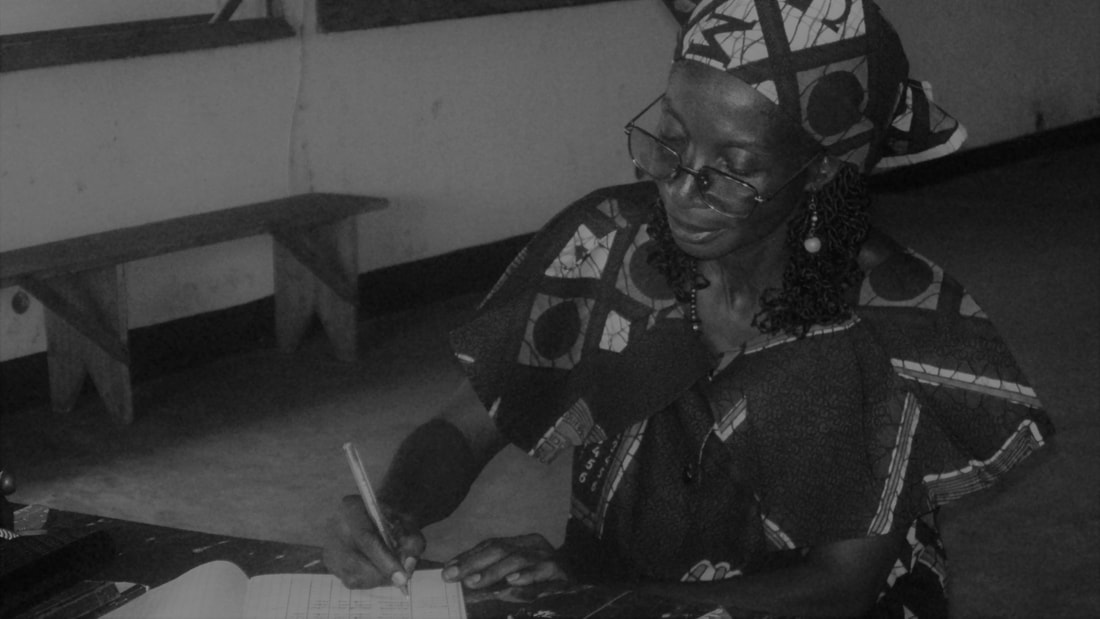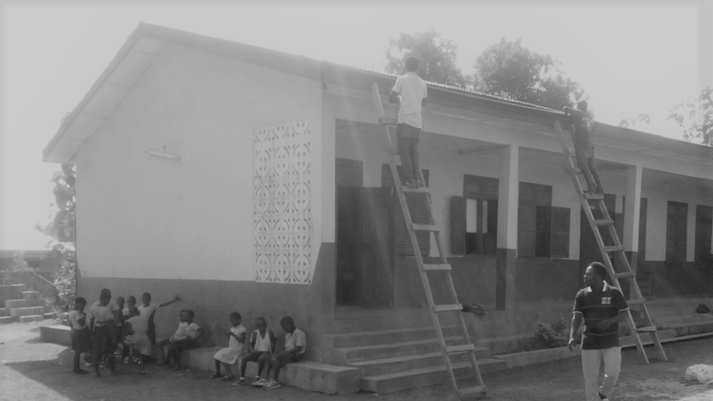LIVING WELL INTERNATIONAL
Living Well International is a partnership between Community InfoSource and two African communities, one in Ghana and the other in Congo. Projects are set up to promote community development, wealth creation, sustainability, enhanced health and well being.
LIVING WELL IN CONGO
Community InfoSource is working with a local NGO Action Thalita Koum based in Congo's capital, Brazzaville, supporting young people from the ages of 19 to 25 to become entrepreneurs and poultry farmers.
Why poultry farmers? An employability investigation funded by Comic Relief took place in Kombe, one of Brazzaville's suburban areas, in the latter half of 2014, and found viability in the initiative.
The project includes four components: vocational training, support, professional integration and employment. For most of these young people, the project is a valuable opportunity to obtain their first job experience. It will also provide them with basic literacy and numeracy, and an introduction to the knowledge and skills that will increase their chances of securing a jobs.
ATK was set up in 1999 by The Episcopal Commission for Catholic Education. (E.C.C.C.E)
ATK supports marginalised children and young people, who are unskilled and unemployed.
Why poultry farmers? An employability investigation funded by Comic Relief took place in Kombe, one of Brazzaville's suburban areas, in the latter half of 2014, and found viability in the initiative.
The project includes four components: vocational training, support, professional integration and employment. For most of these young people, the project is a valuable opportunity to obtain their first job experience. It will also provide them with basic literacy and numeracy, and an introduction to the knowledge and skills that will increase their chances of securing a jobs.
ATK was set up in 1999 by The Episcopal Commission for Catholic Education. (E.C.C.C.E)
ATK supports marginalised children and young people, who are unskilled and unemployed.
LIVING WELL IN GHANA
Community InfoSource is currently working with Abonkosu Community Development Association on a project to develop rainwater harvesting and treatment systems. The aim is provide safe and clean water to a school community of 200 children and staff. The school, which is situated in a remote, rural area, does not have running water and reliable electricity.
This area is on the edge of the rain forest and has frequent, heavy rainfall so rainwater harvesting is an affordable solution. It will give the school's children and staff access to clean water which they can drink, use to wash their hands and clean food with.
Children should no longer have to carry water to school; something which requires time, money to pay for water or the use of polluted water.
Water could also be used in the school gardens, which grows vegetables for school consumption. So, combined with the training of village committee members to maintain the facilities, this project will improve the physical and economic well being of the community, particularly children who are the future of Abonkosu.
Previously we helped the village committee develop its constitution and helped them plan the issues it wanted to address in the neighbourhood. We also encouraged them to set up a bank account with a local bank. Then together we developed a partnership agreement which detailed how we would work together. Following that, we paid for some new footballs for the Abonkosu School to enable children to take part in the inter-school's football tournament.
The school used to grow maize but now they are growing plantains, which they used to feed the visiting schools during the football tournament. They also use the plantain to supplement the Government Feeding Programme.
We have also been supporting the school to build a Dining Room as the children currently eat under a tree. They still have to complete the roof trusses although they have the metal for the roofing material.
Also, the committee has a plan to purchase a milling machine and is planning to pay for the construction of a building to house the machine, primarily to generate more income to develop ACDA's self- sufficiency. This will also free children from having to carrying heavy sacks of maize 2km each way, to the nearest milling machine.
Photo-voltaic solar panels system will be installed as a reliable and clean source of energy to power the UV treatment unit and milling machine.
CIS is fundraising to meet the capital cost of these development plans. You can donate here.
This area is on the edge of the rain forest and has frequent, heavy rainfall so rainwater harvesting is an affordable solution. It will give the school's children and staff access to clean water which they can drink, use to wash their hands and clean food with.
Children should no longer have to carry water to school; something which requires time, money to pay for water or the use of polluted water.
Water could also be used in the school gardens, which grows vegetables for school consumption. So, combined with the training of village committee members to maintain the facilities, this project will improve the physical and economic well being of the community, particularly children who are the future of Abonkosu.
Previously we helped the village committee develop its constitution and helped them plan the issues it wanted to address in the neighbourhood. We also encouraged them to set up a bank account with a local bank. Then together we developed a partnership agreement which detailed how we would work together. Following that, we paid for some new footballs for the Abonkosu School to enable children to take part in the inter-school's football tournament.
The school used to grow maize but now they are growing plantains, which they used to feed the visiting schools during the football tournament. They also use the plantain to supplement the Government Feeding Programme.
We have also been supporting the school to build a Dining Room as the children currently eat under a tree. They still have to complete the roof trusses although they have the metal for the roofing material.
Also, the committee has a plan to purchase a milling machine and is planning to pay for the construction of a building to house the machine, primarily to generate more income to develop ACDA's self- sufficiency. This will also free children from having to carrying heavy sacks of maize 2km each way, to the nearest milling machine.
Photo-voltaic solar panels system will be installed as a reliable and clean source of energy to power the UV treatment unit and milling machine.
CIS is fundraising to meet the capital cost of these development plans. You can donate here.


